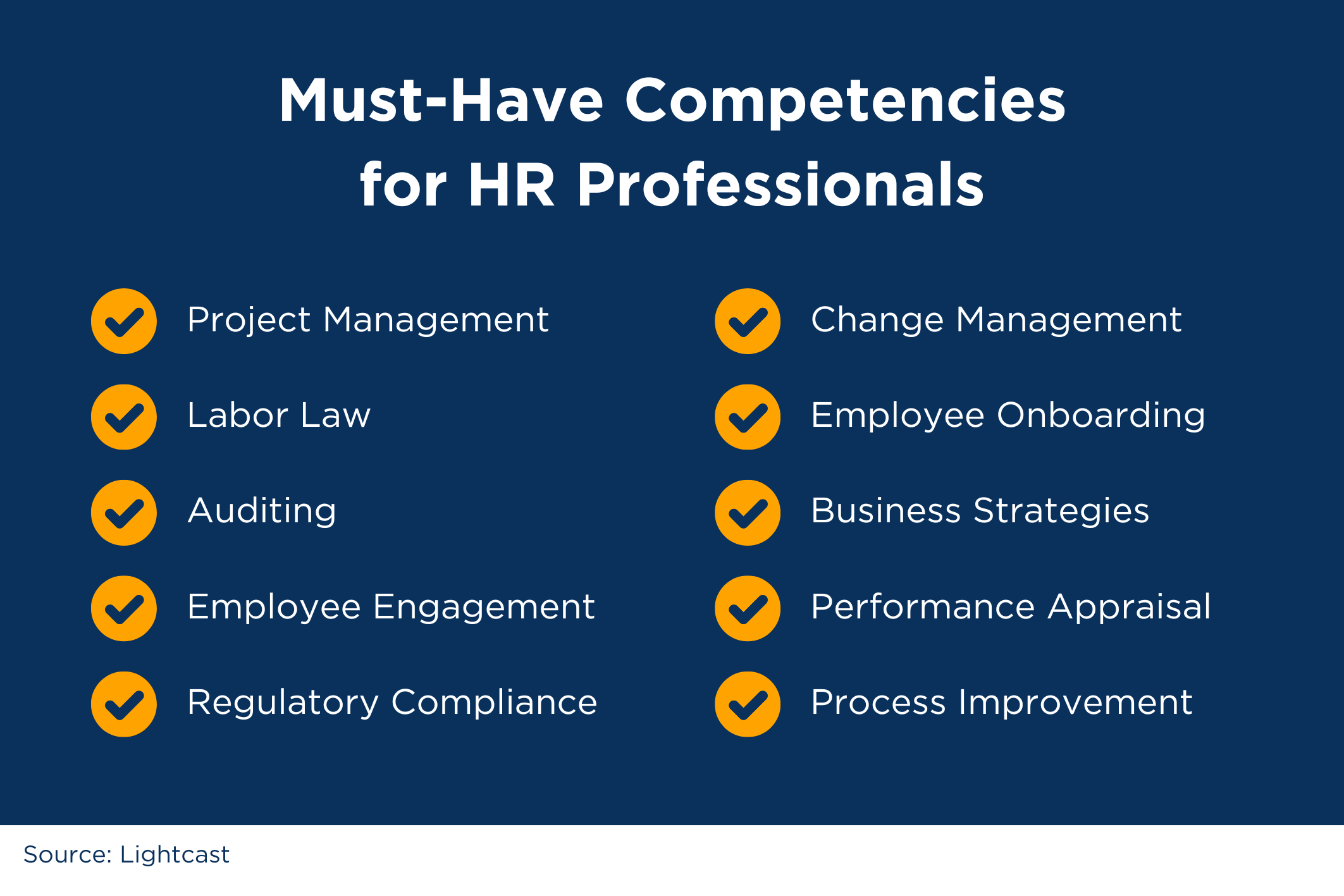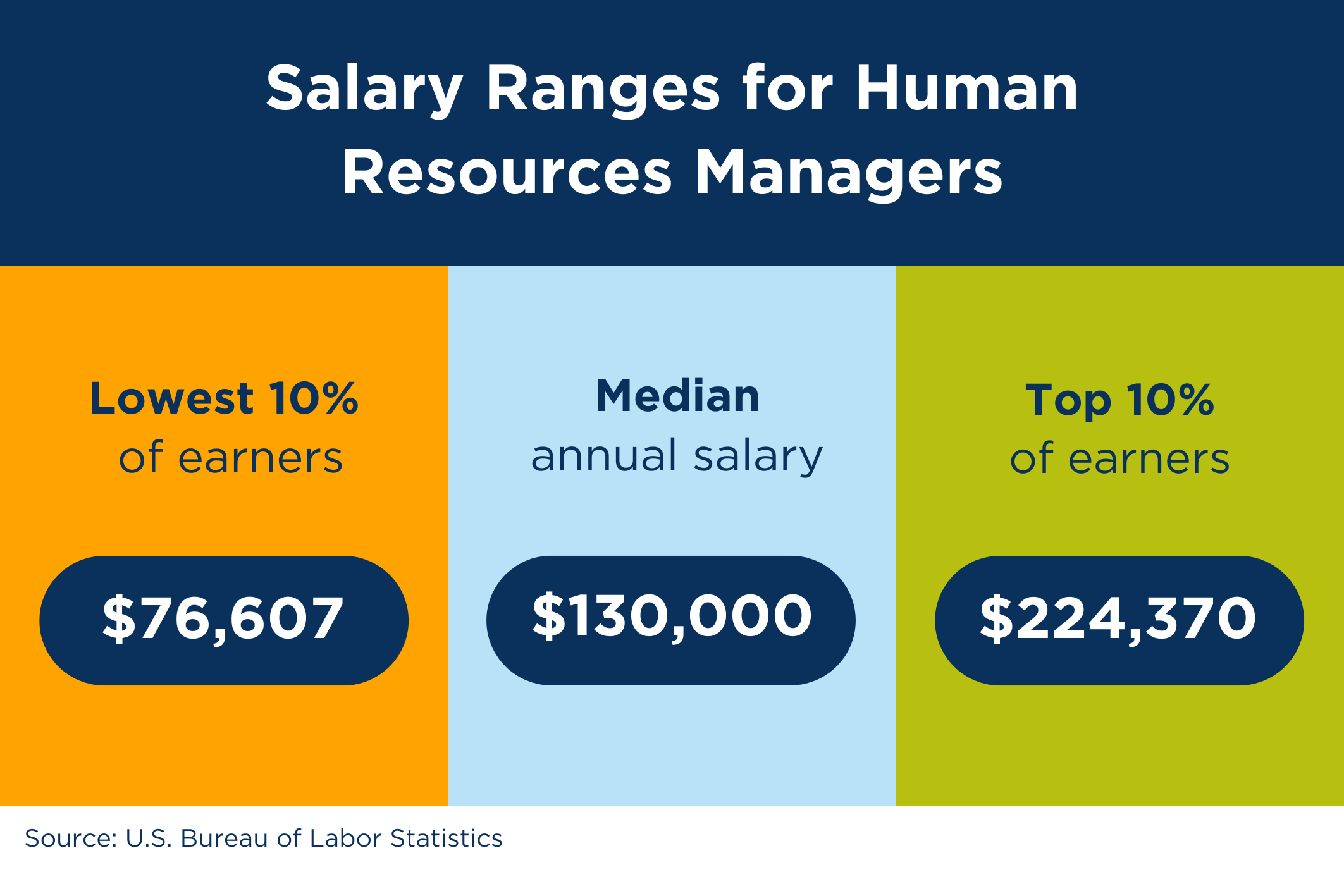Request Information
We're Sorry
There was an unexpected error with the form (your web browser was unable to retrieve some required data from our servers). This kind of error may occur if you have temporarily lost your internet connection. If you're able to verify that your internet connection is stable and the error persists, the Franklin University Help Desk is available to assist you at helpdesk@franklin.edu, 614.947.6682 (local), or 1.866.435.7006 (toll free).
Just a moment while we process your submission.

What Can You Do With a Master's in HR (and What Can It Do for You)?
Business gurus, motivational speakers and successful entrepreneurs everywhere often say this: Good people are behind every great business.
It’s true. Which is why human resources is such an essential component of organizational growth, success and profitability. HR professionals are the people that are in the business of people.
From attracting top talent to global workplaces to complex labor relations issues to comprehensive benefit plans, if you want to advance your human resources career, you’re going to have to know your stuff–and that means growing your skill set and deepening your knowledge within the human resources discipline.
Education + Knowledge + Experience = Career Advancement
You already know that the field of human resources is dynamic. Change, along with people, is precisely what makes HR an exciting career, right? But change also means that what you know about HR may no longer be as relevant as it once was.
To advance in your HR career, you have to advance in your knowledge as much as you advance in your experience. But it can be difficult to stay ahead of current trends and evolving best practices. That’s where a Master of Science in Human Resource Management (MSHRM) can help.
What You Need to Know About a Master’s in Human Resources
If you’re trying to decide if getting your master’s in human resources is worth it, first consider what an HR master’s degree program can do for you.
In general, an advanced degree in human resources will focus on growing your knowledge in six key areas of HR so you can perform as a high-level strategic partner and support your organization’s mission.

Is a Master’s in HR Helpful?
There are a ton of benefits with earning an advanced degree like a master’s in human resources management. There are the intangible benefits, of course, like having a sense of accomplishment, gaining confidence in your work, and proving to yourself and others that you’re ready for that promotion.
When it comes to know what a master’s in HR can do for you, you might want to know about some of the more tangible benefits, like these:
1. Expand your skill set.
The best companies grow into being the best on purpose because they’re intentional about hiring the right people with the right abilities in the right jobs. But building a team of employees and managers who are engaged and driven to succeed takes know-how. It takes the know-how of HR professionals who can:
- Strategize about what organizations need from their people
- Lead the way in recruiting top talent and retain high-performing employees
- Coach, train and support others’ professionals development
- Manage and support organizational change
- Build and sustain a strong organizational culture
If you want to play a pivotal role in ensuring a vibrant, motivated workforce, then a master’s degree might be right for you. It can help you become better at developing, executing and improving global people strategies, human resource systems and programs.
2. Boost your salary.
Education is often a go-to for increasing earning potential. Why? Because it works. In general, says the U.S. Bureau of Labor Statistics (BLS), earning a master’s degree will net you a higher salary. In fact, according to their findings, the more education you have, the higher your salary potential.

As for salary ranges, labor analytics firm Lightcast reports that human resources managers earn a median annual salary of $130,000. The lowest 10% of earners take home $76,607 and the top 10% earn $224,370.
3. Open up career advancement opportunities.
From diversity and inclusion management, to management and labor, to factors affecting human behavior, professionals in human resource management are needed to fill critical roles at the highest levels. Which is probably why the BLS job outlook for human resource managers has such good news. They say the growth rate for HR managers is 7%. That’s faster than the 3% average growth rate for all occupations combined. As for human resource manager positions, the BLS also predicts an average of 16,300 job openings each and every year to 2031.
What matters most when choosing a master’s program? Compare features, benefits and cost to find the right school for you.
Top Jobs: What You Can Do with a Master’s in Human Resources
The opportunities for career advancement for those with a master’s in HR management are wide and varied. Here’s a look at some of the best, top-paying jobs in HR.
Chief Learning Officer | $214,900
CLOs oversee the design and development of knowledge systems, applications and programs.
Compensation & Benefits Manager | $130,665
Compensation & benefits managers manage the design, implementation, communication and evaluation of wage and non-wage benefits programs, policies and procedures.
Human Resources Manager | $116,118
HR managers oversee primary HR functions, such as recruiting, training, diversity, payroll, health & safety, and employee relations.
Industrial Relations Director | $173,700
Industrial relations directors establish, manage and monitor policies and procedures on all labor matters, including contract negotiation and dispute resolution or arbitration.
Learning & Development Director | $96,986
Learning & development directors promote a performance culture by developing strategic organizational training programs and professional development initiatives.
Organizational Development Consultant | $92,301
Organizational development consultants identify performance gaps and recommend solutions to enhance organizational performance.
VP of Human Resources | $231,090
Vice presidents of human resources plan and direct human resources goals, objectives and initiatives to deliver and support organizational excellence and workforce performance.
Is an HR Master’s Right for You?
At the end of the day, human resources is all about supporting employees in ways that free them up to perform at their very best. This means providing effective benefits, such health and dental insurance and paid time off, as well as cultivating a respectful and diverse workplace environment.
Bottomline? The more you know, the better you can do your job. The better you do your job, the better employees can do theirs–and that means success for your organization.
So, when you’re ready to develop your own talent, consider a degree program that also helps you prepare for additional certifications, such as PHR®, Professional in Human Resources and SPHR®, Senior Professional in Human Resources.





